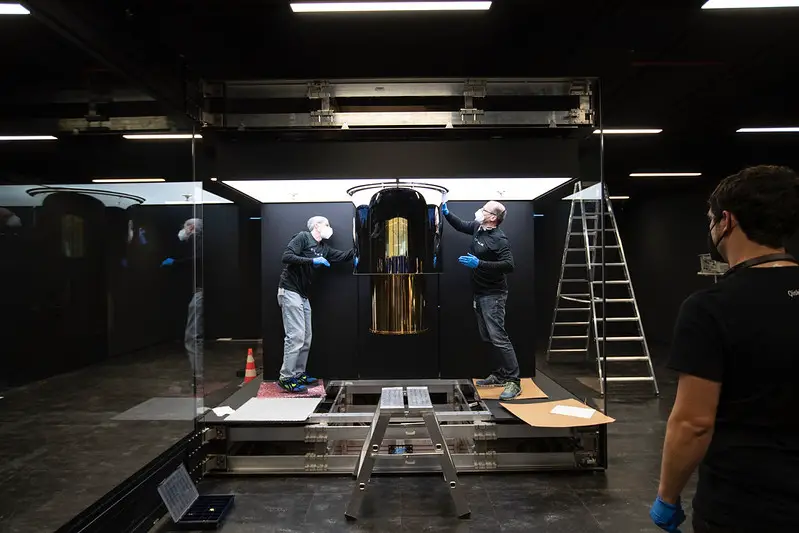What is the Benefit of Interference in Quantum Computing?

Are you curious about the fascinating world of quantum computing? Do you want to know how scientists and engineers harness interference’s power to revolutionise computing? If so, then you’re in the right place! In this blog post, we’ll explore one of the key benefits of interference in quantum computing and how it’s helping to drive innovation in this exciting field.
Understanding Quantum Computing: The Benefits of Interference
Quantum computing is a evolving rapidly which has the potential to revolutionise computational power. A key advantage of quantum computers is their ability to leverage qubits’ intrinsic quantum mechanical properties, such as superposition, entanglement, and interference.
Interference enables quantum machines to make accurate predictions by amplifying desired measurement results. It involves manipulating quantum states by strengthening or weakening wave functions and controlling probability amplitudes to bias the measurement of qubits.
The benefits of interference in quantum computing are immense and may enable the development of applications like faster data processing, cryptography, and machine learning.
Quantum computers equipped with interference capabilities have the potential to outperform their classical counterparts, making them an area of intense research interest.
Introduction
It can potentially revolutionise how we process and compute information, surpassing traditional classical computing. One of the fundamental concepts in quantum computing is interference, which refers to how quantum states interact.
Interference plays a crucial role in quantum computing by manipulating quantum states, controlling probability amplitudes, and allowing for the biasing of qubit measurements.
We are going to explore the benefits of interference in quantum computing and how it has the potential to outperform classical computing in various ways.

IMAGE CC: IBM Research
Qubits and Quantum Properties
Qubits are the fundamental building blocks of quantum computing, and they possess several intriguing quantum properties, such as superposition, entanglement, and interference.
Superposition is the ability to be in multiple states simultaneously. Entanglement is when the properties of two qubits become connected in a way that their conditions become correlated, regardless of their distance.
Interference is the ability to manipulate probabilistic outcomes by controlling the quantum states of qubits. These properties allow quantum computers to outperform classical computers; interference is vital in making this possible.
By utilizing interference, quantum computers can bias the measurement of qubits so that the desired outcome is amplified. This leads to higher efficiency and faster results in complex calculations.
The benefits of quantum properties are still being discovered, but their potential for solving some of the world’s most challenging problems is vast.

IMAGE CC: IBM Research
Superposition
The concept of superposition is a crucial element in understanding the benefits of interference in quantum computing. As previously mentioned, superposition is the property where particles exist simultaneously in all possible quantum states.
This ability allows qubits to process vast amounts of data simultaneously, vastly outperforming traditional computers. When combined with the properties of entanglement and interference, qubits can be manipulated to bias the probability of measurement towards a desired state.
This capability allows for complex computations to be performed in seconds, taking traditional computers years.
The benefits of superposition, entanglement, and interference in quantum computing are at the forefront of technological advancements, with applications in fields such as cryptography, optimization, and simulation, with the potential to revolutionize how we approach complex problems.
Entanglement
Entanglement is yet another quantum property that allows for unique benefits in quantum computing. When applied to computing, this means that multiple qubits can be entangled and used to perform calculations simultaneously, resulting in a significant increase in computational power.
This is because entanglement allows for an exponential rise in the amount of information that can be processed simultaneously, providing another way for quantum computing to outperform its classical counterparts.
Additionally, because entangled qubits share information instantaneously across great distances, there are exciting possibilities for secure communication and encryption using quantum entanglement.
Interference
Interference is a crucial component in quantum computing and offers significant benefits. It works hand in hand with superposition and entanglement to create the peculiar properties that make quantum computing so powerful.
Interference in quantum computing refers to the control of probability amplitudes and the manipulation of quantum states. By biasing the measurement of qubits in this way, interference can outperform classical computing.
Its ability to manipulate quantum states and control probability amplitudes allows the computer to process multiple calculations simultaneously. As a result, interference is a vital aspect of quantum computing that offers countless possibilities for solving complex problems.
What is Interference in Quantum Computing?
Interference in quantum computing is manipulating quantum states by enhancing or diminishing their wave functions. It’s a powerful tool that allows us to influence the probability of a system of qubits collapsing into particular measurement states.
In quantum computing, every possibility has some chance of happening, and interference allows us to affect probability amplitudes. By doing so, we can control the outcome of quantum calculations to bias measurements towards a desired state.
Interference, a byproduct of superposition, is vital in quantum computing as it enables qubits to outperform classical computing.
By harnessing this intrinsic behavior of qubits, interference can be utilized to perform complex calculations much faster than traditional computers.
Controlling Probability Amplitudes
In quantum computing, controlling probability amplitudes is a key concept in achieving desired outcomes.
Through interference, the wave functions of quantum particles can be reinforced or diminished, ultimately affecting the probability of collapse into specific measurement states.
This manipulation of quantum states allows for greater control and precision in computations. Infection can outperform classical computing in particular applications by harnessing the power of superposition and entanglement.
Overall, interference is a valuable tool in advancing the potential of quantum computing.
Manipulating Quantum States
Manipulating quantum states is a key concept in quantum computing that enables complex calculations to be carried out faster than classical computers.
By utilizing quantum properties such as superposition and entanglement, particles in a quantum system can exist in multiple states simultaneously, allowing for more options to be explored simultaneously.
Interference is crucial in manipulating these states to bias qubit measurement and amplifying the desired results. This ability to control quantum states also allows for detecting and correcting errors in quantum data.
By harnessing interference, quantum computing can outperform classical computing in speed and efficiency.
Biasing the Measurement of Qubits
Quantum interference is essential in controlling the measurement of qubits in quantum computing. By biasing the measurement of a qubit towards a desired state or set of states, we can achieve desired results in quantum computing operations.
Interference allows us to intentionally affect the probability amplitudes of a qubit and manipulate its quantum state. This is achieved through the ability to divide a qubit’s bias current into two alternative paths, resulting in a desired outcome.
The benefits include the unimaginable speeds and capabilities of quantum computing compared to traditional computing methods, opening up new possibilities in cryptography, medical research, and artificial intelligence.
With interference, quantum computing can achieve astounding results, making it a valuable tool for scientists, researchers, and industries.
How Interference Can Outperform Classical Computing
Interference is one of the key reasons why quantum computing can outperform classical computing.
By manipulating the quantum state of qubits through constructive or destructive interference, quantum computers can amplify the correct solutions to problems and minimise all other possibilities.
This can lead to exponential speedups in specific tasks, such as breaking encryption and simulating complex molecules.
Unlike classical computing, which relies on binary bits that can only be in one of two states (0 or 1), quantum computing leverages the probabilistic nature of quantum properties like interference to store and manipulate information.
While superposition and entanglement also play essential roles in quantum computing, interference is a crucial tool that harnesses the power of quantum computing.
Conclusion
In conclusion, interference is a crucial technique in quantum computing that helps amplify the desired results of qubit measurements.
By manipulating the wave functions of quantum systems, interference allows for increased accuracy and faster calculations. This is vital since quantum computers can be used to solve complex problems that exceed the capabilities of classical computers.
The benefits of interference, alongside superposition and entanglement, make quantum computing a game-changing technology that has the potential to revolutionize industries.
However, it’s important to note that quantum computers are not always precise, and external interference can affect their performance. Therefore, further research and development are necessary to improve the reliability of quantum systems.
A Quantum Computer’s Operation is Explained
RELATED: Antimatter: Most Dangerous and Expensive Material in the World. Read More…

